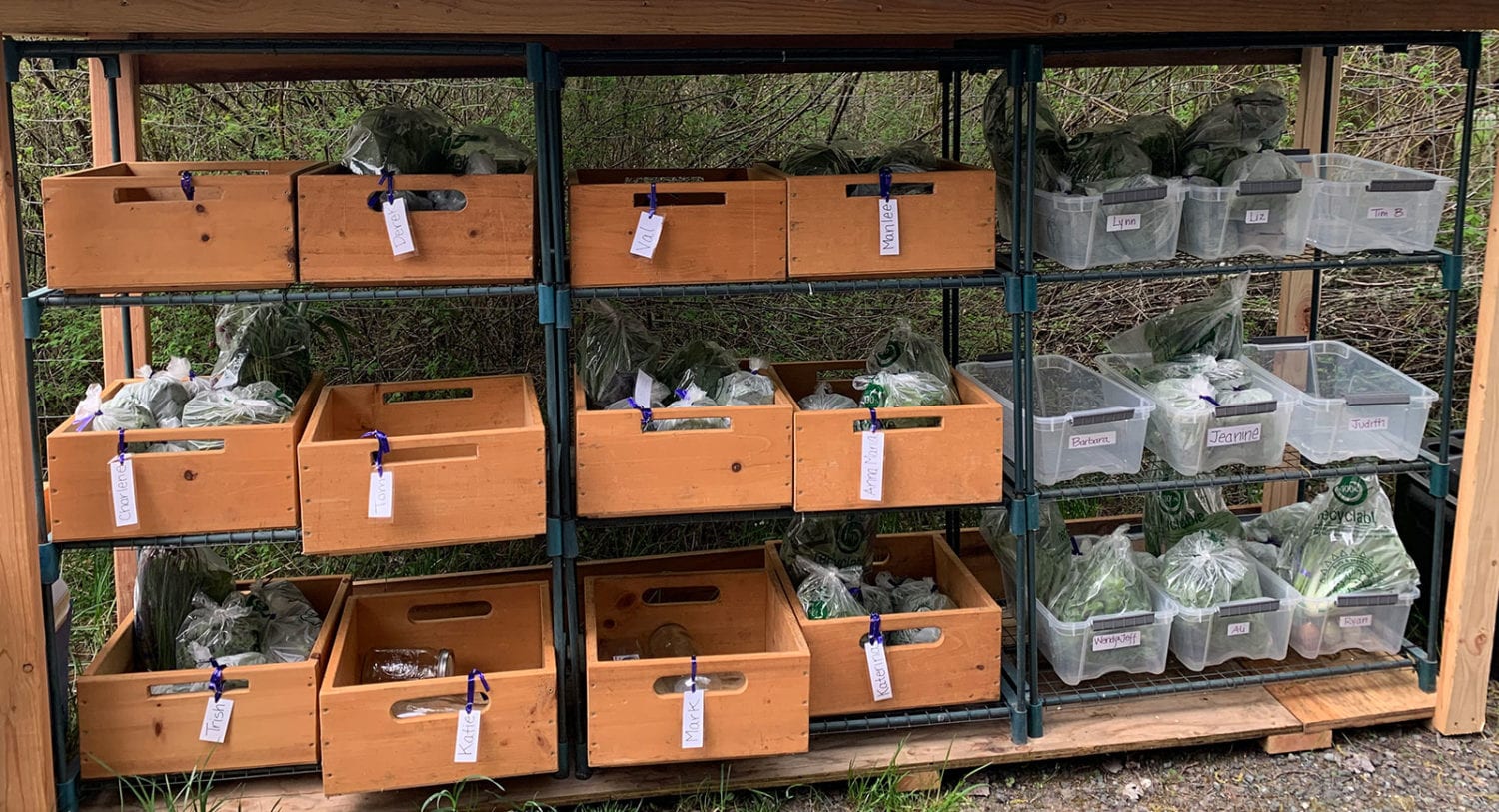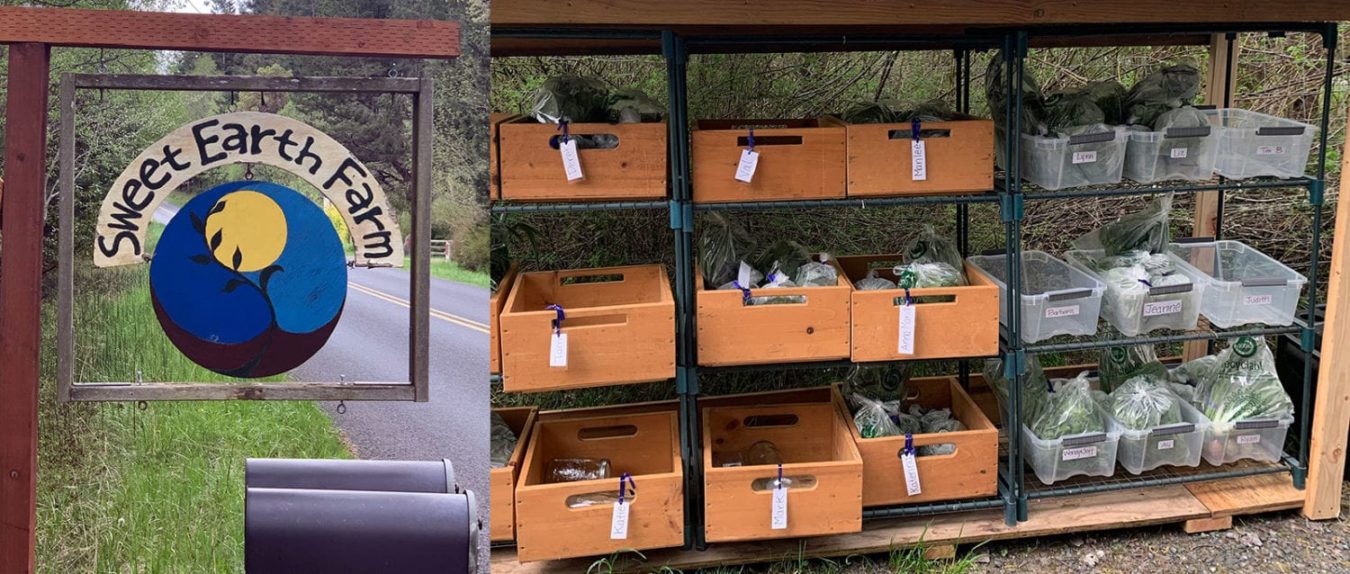Contributed by Chef Tim; Images by Chef Ryan and Chef Tim.
I graduated from culinary school in 2002, which seems like ages ago. Wait—I guess it’s been 18 years?! Many parts of that time are not memorable. I had returned to my roots in the Midwest, had left the corporate world and making, well, a lot more than the minimum wage job I was now working, and had temporarily returned to live at my parent’s house. I was starting at the bottom again. What happened in my first year there, however, changed my whole view of food and resulted in me committing to a certain direction in my career that still resides with me today: I joined a Community Supported Agriculture plan (commonly referred to as a CSA) with a local farm.

It changed my culinary perspective. See, I grew up in a large(ish) family alongside four siblings and with parents who were children of the south, impoverished and still living a life very much influenced by parents who experienced the Great Depression. Growing our own food was part of my childhood—a very big part that I resented growing up—filled with weeding, picking, tilling, and bugs (lots of bugs!). On hot and humid summer nights, the house was often steaming due to the pressure cooker running on overdrive to can and preserve what we were not eating so that in the dead of winter we could make a trip to the basement—oh, that scary haunted basement—to get a jar of tomatoes or green beans or peas rather than go to the store. I took it for granted until I started working in restaurants in culinary school. There I saw cardboard tasting unripe tomatoes, bagged precut lettuce with no flavor, and absolutely no attention to seasonality. Was this the best way to consume food?
My partner during that time worked at a restaurant where the owners had ties to California and had worked for disciples of Alice Waters, a champion of local foods and things like CSAs. We stumbled upon a local CSA and she suggested we get involved. Being in love and, well, thinking she walked on water (at that time she certainly did to me) I happily jumped into the world of local foods with her and we joined the CSA.
CSAs are a way to help small farmers fund their operations and avoid the middlemen in our food supply chain. It’s a partnership between those who grow the food and those who consume the resulting fruits of their labor. What I rediscovered was how amazing food was when it was grown with respect for the earth (and the future of the earth), with intent, love, compassion, and a focus on quality as opposed to merely quantity. Each week, we trekked to the farm and picked up our box. Oh, that box! It changed every few deliveries—no monoculture here—packed with what was ready to be picked and consumed at that moment. Was it shelf-stable? No, it was ready to be consumed in the short term when it was at its most delicious and nutritious. A tradition developed. Once a week, we picked up our box and, over a glass of wine, a plan was hatched. What was in there? How are we going to eat it and with what? Daikon, what the hell was daikon? Our plan usually meant less time and money spent at the grocery store and more time spent cooking and consuming what was in that box over the next week. It changed me in so many ways with respect to the kind of chef I was to become. Wasn’t it much more sensible to support the local economy than big agriculture hundreds if not thousands of miles away? Shouldn’t you look at what’s available then decide what to cook?

We are in a time of such uncertainty and with that uncertainty is stress—for some, lots of stress—and fear. I, and I am sure many of us who live on San Juan Island, feel lucky that we have a network, albeit small, of farms and local artisans who can supply us in this way. Like many, I am home and cooking. So, I joined Sweet Earth Farm’s CSA here on the island. This post speaks to what Community Supported Agriculture means to me and has meant to my formation, and from here we will begin an online series dedicated to CSA plans. We will pick them up, unbox them, and share with you the little treasures that lie within, along with our favorite ways to cook and store them. We hope this will be entertaining while we are all more homebound. Perhaps you will feel inspired to seek out a CSA in your own community.
For those here on San Juan Island, while some of the CSA plans are full, many of these same products from local farms are available to you whether through the farm’s own store, the San Juan Island Food Co-op (thank you for championing these amazing farmers!), and eventually at the farmers market.
As you read these blog posts, we are here to answer questions you might have. What is cress? What do you do with green garlic? Let us know what’s in your box and on your mind. Share with us what you are doing with these lovely little miracles, too. We would love this to be an interactive, fun, and soothing way to connect and cope with some of the stress we are all feeling.

